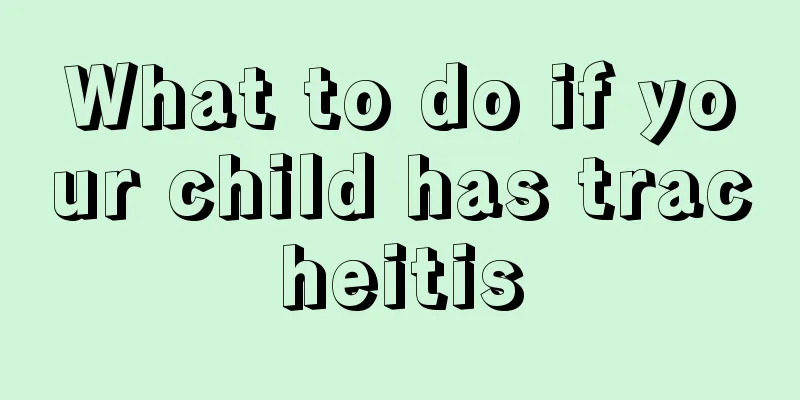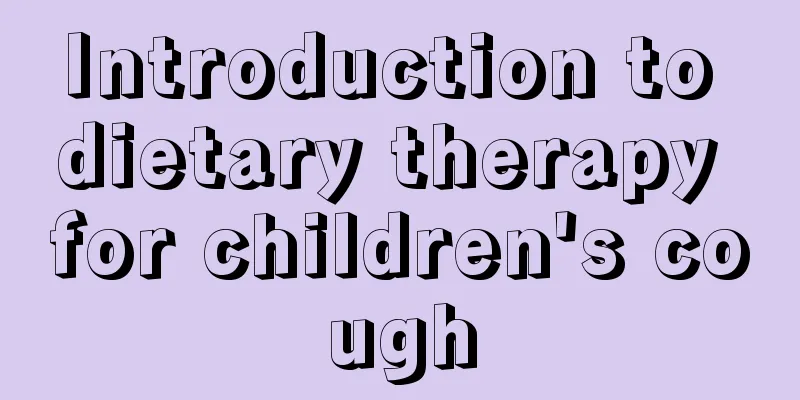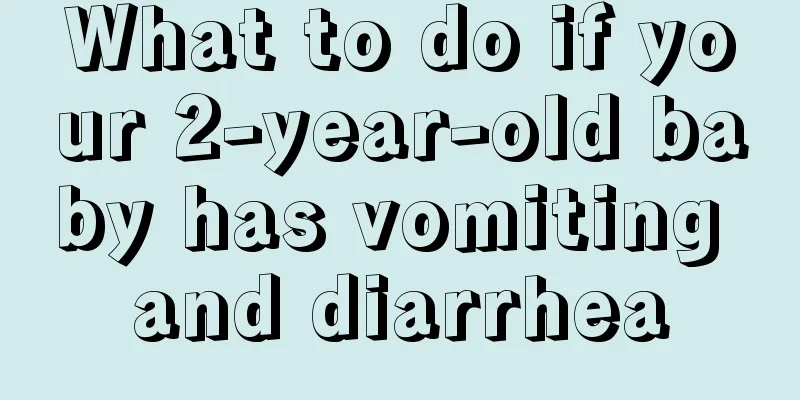Is intravenous infusion necessary for hand, foot and mouth disease?

|
After your baby gets hand, foot and mouth disease, you must go to the hospital for examination in time. Under the guidance of the pediatrician, strictly follow the doctor's orders and receive treatment for the disease. For hand, foot and mouth disease, intravenous infusion is generally used for treatment, and the baby should be protected from being invaded by other pathogens, because the baby's body is very weak during this period and may be infected by other viruses if not careful. So, is intravenous infusion necessary for hand, foot and mouth disease? 1. Treatment 1. General treatment If there are no complications, the prognosis of this disease is generally good and most patients recover within a week. Mainly for symptomatic treatment. (1) First, isolate the sick child, and those in contact should be disinfected and isolated to avoid cross infection. (2) Provide symptomatic treatment and maintain good oral care. (3) Clothes and bedding should be clean, comfortable, soft, and changed frequently. (4) Cut your baby’s nails short and wrap your baby’s hands if necessary to prevent scratching the rash. (5) For babies with rashes on their buttocks, their urine and feces should be cleaned up at all times and their buttocks should be kept clean and dry. (6) You can take antiviral drugs and Chinese herbal medicines that clear heat and detoxify, and supplement vitamins B and C. 2. Combined treatment (1) Closely monitor changes in the patient's condition, especially the functions of important organs such as the brain, lungs, and heart; for critically ill patients, pay special attention to monitoring blood pressure, blood gas analysis, blood sugar, and chest X-ray. (2) Pay attention to maintaining the balance of water, electrolytes, acid and alkali, and protecting important organs. (3) Patients with increased intracranial pressure should be given appropriate treatment. (4) Patients with signs of respiratory failure such as hypoxemia and dyspnea should receive mechanical ventilation as soon as possible. (5) Maintain stable blood pressure. Treatment of other severe conditions: If DIC, pulmonary edema, heart failure, etc. occur, appropriate treatment should be given. 3. Antiviral drugs Because antiviral drugs are generally best used 24 to 48 hours before onset of illness. Often when we diagnose hand, foot and mouth disease, the most effective treatment stage has passed, and the use of antiviral drugs is not recommended now. 2. Prevention 1. Children should wash their hands with soap or hand sanitizer before meals, after defecation and after going out. Do not let children drink raw water or eat raw or cold food, and avoid contact with sick children. 2. Caregivers must wash their hands before contacting children, changing diapers, and handling feces, and dispose of waste properly. 3. Bottles and nipples used by infants and young children should be thoroughly cleaned before and after use. 4. During the epidemic period, it is not advisable to bring children to public places where people gather and air circulation is poor. Pay attention to maintaining a clean home environment, ventilate the room frequently, and dry clothes and quilts frequently. 5. Children should go to a medical institution promptly if they develop related symptoms. Sick children should not come into contact with other children. Parents should promptly dry or disinfect the sick children's clothes and disinfect the sick children's feces in a timely manner. Children with mild symptoms do not need to be hospitalized and should be treated and rest at home to reduce cross-infection. 6. Clean and disinfect toys, personal hygiene utensils, tableware and other items daily. 7. Child care units should conduct morning inspections every day. If any suspected sick child is found, they should be promptly sent to the hospital for treatment or have the child rest at home. Any items used by the sick child should be disinfected immediately. 8. When the number of children with the disease increases, report it to the health and education departments in a timely manner. According to the needs of epidemic control, local education and health departments may decide to take measures to close childcare institutions or primary schools. |
<<: What to do if you don't eat for hand, foot and mouth disease
>>: How to treat mild hand, foot and mouth disease
Recommend
What are the dangers of a newborn choking on water?
Since many organs of newborns are not fully devel...
Intellectual development of 30-month-old baby
The intelligence of a thirty-month-old baby has b...
Can babies eat sea bass?
We know that fish are rich in nutrients, and diff...
Methods of educating young children
When the baby is young, we should not only pay at...
Causes of nosebleeds in children
For parents, no matter what symptoms their childr...
What are the dangers of kissing your baby?
As parents, the thing they love most is their bab...
What are the treatments for oral ulcers in children?
In daily life, it is common for children to suffe...
When do children grow fastest?
We all know that when a person reaches a certain ...
Treatment for ankle pain in children
We know that many children have ankle pain, which...
Three month old baby not feeding at night
If a baby under three months old does not eat at ...
Why do children have cold hands and feet when they have a fever?
Some parents may feel confused. Their children ar...
How to treat meningitis in children
Meningitis is a particularly serious disease, esp...
What are the symptoms of rectal polyps in children?
Adults generally do not have problems with rectal...
Children with cold and stuffy nose
Colds and fevers are the most common diseases amo...
How long does it take for baby's keratitis to heal?
Keratitis is a very common eye disease, usually c...









